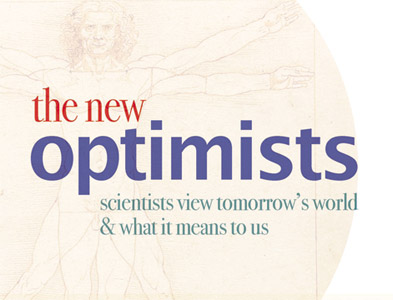Sir John Beddington, the UK Government Scientific Adviser, has chillingly said:
Can nine billion people be fed? Can we cope with the demands in the future on water? Can we provide enough energy? . . . And can we do all that in 21 years time? That’s when things are going to start hitting in a really big way . . . 2030 is not very far away.
 Over the next few decades there will tremendous advances made in nanotechnology, Professor Jon Preece‘s research area.
Over the next few decades there will tremendous advances made in nanotechnology, Professor Jon Preece‘s research area.
But that’s not the reason why he’s optimistic about science and scientific endeavour. The challenges we’re facing require a multidisciplinary approach. What Professor Preece is optimistic about, even in the face of the challenges Sir John Beddington calls the ‘perfect storm’, is the way scientists, medics, engineers from all backgrounds are not afraid to speak to each other, to exchange ideas and concepts, to bring new perspectives on old problems, to work together to create innovative and transformative solutions that will have the potential to solve the pressing, serious problems we’re facing.
Jon Preece is Professor of Nanoscale Chemistry at the University of Birmingham. His work is focused on the interdisciplinary nature of nanoscale chemistry, including nanostructuring surfaces via the integration of top-down and bottom-up methodologies, gene delivery based on polycations, nanotribology, liquid crystals and nanoscale electronics. He is also on the Editorial Board of the Chemistry Society Reviews.
Tags: jon preece, nanoscale chemistry, nanotechnology, univerity of birmingham








